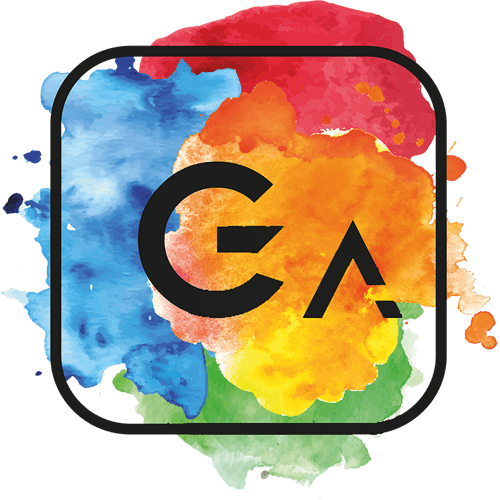On International Women’s Day And Every Day
8 March 2022, London: Female health has been significantly overlooked, undervalued and underfunded for far too long, with an overwhelming 84% of women in the UK feeling that they are not listened to by healthcare professionals, and that gynaecological conditions, fertility, pregnancy, pregnancy loss and postnatal support, as well as menstrual health need to be prioritised[1]. Flo—the world’s leading female health app for over 220 million women to date—is playing its part in closing this gender health gap.
Flo is a tech-enabled, medically credible platform, co-created with a network of 100+ world-class medical doctors, scientists and health experts who ensure the information and functionality of the app are evidence-based and up-to-date. By supporting women at each stage of their reproductive life—from the start of menstruation and cycle tracking, to pregnancy and perimenopause—Flo connects them to the powerful signals of their cycle and their bodies. Flo offers accurate cycle and symptom predictions, personalised insights, actionable guidance and a supportive community, where sisterhood is encouraged and nurtured.
This International Women’s Day, Flo’s team of medical experts has created a list of 10 things everyone needs to know about female health at different ages and stages.
“At Flo, we believe that helping women learn more about their body signals helps them better understand and support themselves and other women around them—today and every day”, said Lauretta Ihonor, Director of Medical Accuracy at Flo. “Also, developing a deeper knowledge of women’s health can help empower everyone to be a part of a much-needed dialogue about topics like menstruation, which still carry a level of stigma that needs to be broken.”
- The age of menarche. A young woman’s first menstrual period is medically known as menarche and it represents a significant milestone in her life. Over the years, the age of the first period has dropped noticeably: while in the 1800s the average age was 16.5 years, now it is 12.
- PMS (Premenstrual Syndrome) – is it a myth? Some might think so, but PMS is in fact a combination of physical, behavioural and emotional symptoms that, according to doctors, about 75% of women in their reproductive years experience in the weeks before their period. The most common symptoms are mood swings, cramps, fatigue, breast tenderness and/or headaches. On the other hand, some women have also noticed positive changes like better coordination or an increased sex drive.
- Did you know eating low-sugar foods could help with your PMS? We know it’s easy to reach for the chocolate or ice cream if you have mood swings due to PMS, but eating foods that have lower sugar levels may help manage the symptoms better.
- How much do women actually bleed during their periods? On average, a woman loses two to three tablespoons of blood while they have their period. The amount can double in the case of those who have heavy periods. Not only blood is lost though, as other fluids like mucus can make up up to 64% of the flow.
- Period pain. It is thought that period pain affects anywhere from 45% to 95% of those who have periods at some point. It is important to know if it is primary dysmenorrhea (period pain with no underlying medical condition) or secondary dysmenorrhea (period pain associated with at least one identifiable health condition). If cramps are worsening or new, menstrual flow increases, the pain impacts one’s normal routine, it is recommended to see a doctor.
- Period sex – yay or nay? There is no right or wrong answer here, it all comes down to what both partners are happy with. Research published in the journal Archives of Gynecology and Obstetrics suggest that up to 30% of women have had sex during their period. It’s no wonder then that period blood has been affectionately dubbed “cherry lube” by some. However, it is still possible to get pregnant or get a STI (sexually transmitted infection) while having period sex, so a barrier contraceptive method should still be used.
- Little known facts about ovulation. When ovulating, women’s senses—such as their smell—can become sharper. Also, some women feel when they are ovulating, by experiencing a dull pain in their lower abdomen, known as Mittelschmerz.
- The miracle of life. Creating a new life by conceiving a baby is a miraculous event. What is important to know is that you don’t have to have sex only on the day you ovulate to get pregnant. You can conceive even if you have sex up to five days before you ovulate. Also, as pregnancy is counted from the first day after your last period, it’s very difficult to accurately measure the exact day of conception. By the start of a pregnant woman’s second trimester (week 13), the foetus is the size of a pea pod, and by the start of the third trimester (week 24), the size of a coconut.
- Perimenopause – what’s that about? Contrary to some beliefs, menopause isn’t something that appears all of a sudden, but rather a gradual process that officially happens after a full year of no periods. That transitional period before menopause is called a perimenopause, lasting on average approximately four years. Also, menopause can appear at different ages, ranging from a woman’s late 30s to early 50s.
- Women’s health conditions we need to talk more about. PCOS (polycystic ovary syndrome) and endometriosis are two conditions that affect millions worldwide. Around the world, almost 200 million have been diagnosed with endometriosis—generally taking up to seven years for a woman to be diagnosed with this condition—while five to ten percent of women and people with uteruses have PCOS, although it is thought to be undiagnosed in up to 70% of those who actually have it.
These are just a few facts selected from a whole variety of things women all over the world experience at each stage of their reproductive life, as Flo’s aim is to open up and support a wider conversation on the complex topic of women’s health. By helping women harness the power of their body signals, Flo is playing its role in building a better global future for female health.
For more information and insights, please download the Flo app and visit Flo’s Health Library on the website.
— ENDS —
Media contact
Gallium Ventures
Email:
[1] https://assets.publishing.service.gov.uk/government/uploads/system/uploads/attachment_data/file/1042631/dhsc-our-vision-for-the-women_s-health-strategy-for-england.pdf


